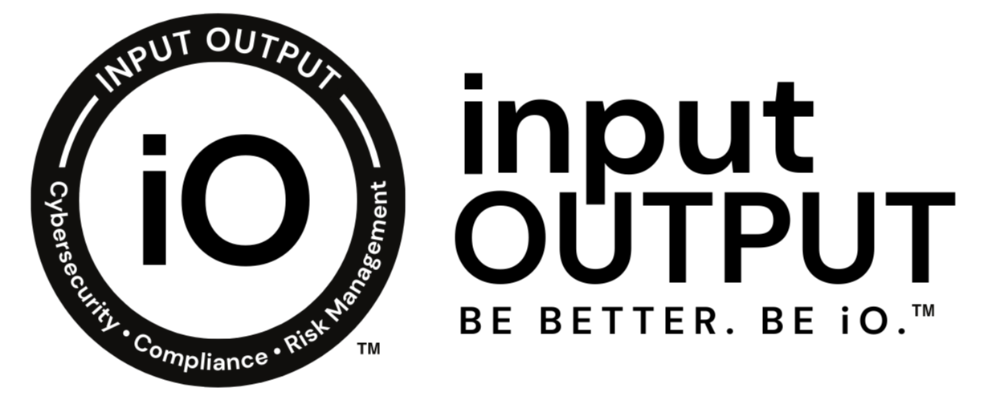Meta Fined €91 Million for Ignoring Good Password Practices: A Lesson in Data Privacy Compliance
Oct 01, 2024
In the rapidly evolving digital landscape, data privacy and security have become more critical than ever. Tech companies that handle large volumes of user data are under immense scrutiny to adhere to stringent regulations. A recent development underscoring the importance of these practices is the €91 million fine imposed on Meta, the parent company of Facebook and Instagram, by the Irish Data Protection Commission (DPC). This incident has sparked conversations about data privacy and the repercussions companies face for non-compliance.
What Led to the Fine?
The fine stems from a significant data protection lapse dating back to 2019. During this time, Meta was found to have stored the passwords of millions of Facebook and Instagram users in plaintext. Typically, passwords are stored in an encrypted format, known as hashing, to protect user data. Storing passwords in plaintext is considered a fundamental security error, leaving users vulnerable to potential cyberattacks.
The incident not only raised concerns about Meta's data security practices but also highlighted the importance of regulatory compliance. The General Data Protection Regulation (GDPR) sets stringent standards for data handling and storage, especially in cases involving sensitive information like passwords. Meta's violation of these regulations ultimately resulted in the substantial fine imposed by the DPC.
A Breach of Trust and Credential Hygiene

Meta's mishandling of user data in this manner is particularly concerning, considering the company's vast global user base. Facebook and Instagram, both under Meta’s umbrella, collectively have billions of users. For many, these platforms are integral to their daily communication, business operations, and social interactions. The discovery that such a fundamental security lapse occurred within these widely used services highlights the potential risks posed to users when companies fail to prioritize robust security measures.
Furthermore, the investigation revealed that the storage of plaintext passwords dated back to 2012, indicating that the issue persisted for several years before it was uncovered. This long-term security flaw underscores a systemic issue within Meta's internal processes related to data privacy and protection.
Regulatory Compliance and the GDPR: Password Security
The European Union introduced the GDPR in 2018 as a comprehensive regulation to safeguard the data privacy rights of individuals within the EU. It mandates organizations to implement robust measures to safeguard personal data and to promptly report any data breaches. Failure to comply with these regulations can lead to severe penalties, as demonstrated by the €91 million fine imposed on Meta.
One of the GDPR's core requirements is the principle of data protection by design and by default, which obliges companies to incorporate data privacy measures into their systems from the outset. In this context, Meta's storage of passwords in plaintext was a clear violation, indicating a lack of proper data security protocols and practices. The DPC's investigation also found that Meta failed to notify affected users promptly, further compounding the breach of GDPR rules.
Meta's Response to the Fine
Upon the discovery of the security lapse in 2019, Meta claimed to have taken "immediate action" to address the issue. They implemented corrective measures to prevent further unauthorized access and updated their internal systems to ensure better data protection. However, this was not enough to avoid scrutiny or the eventual fine, which serves as a warning to other organizations that retrospective fixes cannot undo the damage caused by inadequate data security.
Meta has since expressed disagreement with the DPC's findings and the hefty fine. The company insists that there was no evidence of misuse of the plaintext passwords during the breach. However, the GDPR focuses on the protection and correct handling of personal data, regardless of whether the data was exploited. The incident serves as a crucial reminder that companies are responsible not just for preventing misuse but also for following best practices in data handling and storage.
Implementing Multi-Factor Authentication
Multi-factor authentication (MFA) is an essential security feature that provides an additional layer of protection for your accounts. Here are some best practices for implementing MFA:
-
Enable MFA on All Accounts: MFA can be activated on most online accounts, including email, social media, and financial services. This additional security measure is essential for protecting sensitive information.
-
Use Multiple Authentication Factors: Combine different types of authentication factors, such as a password, a one-time passcode, and biometric data. This multi-layered approach makes it more challenging for attackers to breach your accounts.
-
Opt for Secure Authentication Methods: Use a secure authentication app or token to generate one-time passcodes. Avoid relying on SMS or email for receiving passcodes, as these methods can be susceptible to interception.
-
Regularly Review and Update MFA Settings: Periodically check and update your MFA settings to ensure they remain secure and effective. This proactive approach helps maintain the integrity of your account security.
Following these best practices can greatly strengthen your password security and safeguard your digital assets against potential threats.
The Broader Implications of the Fine

Meta's €91 million fine is one of the largest penalties under the GDPR to date, highlighting the seriousness with which regulatory bodies view data protection failures. It also sets a precedent for other companies, illustrating that even industry giants are not immune to the consequences of non-compliance. In an era where data breaches and privacy concerns are increasingly common, regulatory bodies like the DPC are taking a firm stance to enforce data protection laws and protect user rights.
This incident raises several questions about how companies manage user data:
-
Are companies investing enough in cybersecurity? With the scale and frequency of data breaches on the rise, it’s crucial for organizations to regularly audit and enhance their security protocols.
-
What more can be done to ensure compliance? Businesses need to actively incorporate GDPR requirements into their operations. This includes routine risk assessments, employee training, and regular updates to security measures.
-
What role do users play in data security? While companies bear the primary responsibility for protecting user data, users themselves should also adopt good security practices, such as creating strong passwords and enabling two-factor authentication.
Lessons for Businesses
This fine serves as a stark reminder to all organizations, especially those handling large volumes of sensitive user data. Compliance with data protection regulations is not optional; it’s a legal obligation. To avoid similar pitfalls, businesses should:
-
Implement Strong Encryption: User passwords and other sensitive information should always be encrypted using industry-standard hashing techniques. Additionally, using unique passwords for every login account is crucial to protect login credentials and prevent unauthorized access.
-
Regular Security Audits: Conduct periodic reviews of data security practices to identify and address vulnerabilities.
-
Employee Training: Ensure that all staff are adequately trained in data privacy principles and are aware of their responsibilities under regulations like the GDPR.
-
Immediate Breach Notification: Establish protocols for quickly identifying and reporting data breaches to relevant authorities and affected users, as mandated by regulations.
Protect Passwords: Password Security Essentials

Password security is a cornerstone of protecting your online accounts and sensitive information. A strong password acts as the first line of defense against cyber threats, making it crucial to adhere to password security best practices. Here are some essential tips to bolster your password hygiene:
-
Create Strong and Unique Passwords: Each account should have a unique password that is at least 12 characters long. To increase complexity, include a combination of uppercase letters, lowercase letters, numbers, and special characters.
-
Avoid Predictable Information: Steer clear of using easily guessable details such as names, birthdays, or common words. These can be easily cracked by brute force attacks.
-
Use a Password Manager: A password manager can generate and store complex passwords for each of your accounts securely. This tool not only simplifies password management but also ensures that your stored passwords are protected.
-
Enable Multi-Factor Authentication (MFA): Whenever possible, activate MFA on your accounts. This adds an extra layer of security by requiring a second form of verification, such as a one-time passcode or biometric data, making it significantly harder for unauthorized users to gain access.
Password Storage and Management
Proper password storage and management are vital to maintaining robust password security. Here are some best practices to follow:
-
Utilize a Password Manager: A password manager is an indispensable tool for storing and managing your passwords. It can generate unique passwords for each account and offer additional security features like encryption and two-factor authentication.
-
Avoid Plaintext Storage: Never store passwords in plain text or in unsecured locations. Instead, use a password manager or a secure note-taking app to keep your passwords safe.
-
Set a Strong Master Password: Your password manager should be protected by a strong master password. Your password should be at least 12 characters long and contain a mix of uppercase and lowercase letters, numbers, and special characters.
-
Regularly Update Software: Ensure that your password manager software is always up-to-date and compatible with your devices and browsers. Regular updates can protect against vulnerabilities and enhance security features.
The Road Ahead
The imposition of this fine sends a clear message: data privacy and protection are non-negotiable in today’s digital economy. Companies must take proactive measures to protect user data and comply with regulatory standards to maintain trust and avoid substantial penalties. As the digital landscape continues to evolve, data protection will remain at the forefront of user concerns and regulatory oversight.
In conclusion, Meta's fine is a wake-up call for all businesses in the digital space. It reinforces the importance of data privacy, the need for rigorous security measures, and the consequences of failing to adhere to established regulations. For users, this serves as a reminder to remain vigilant about their online security and to demand better practices from the platforms they use.
STAY INFORMED
Subscribe now to receive the latest expert insights on cybersecurity, compliance, and business management delivered straight to your inbox.
We hate SPAM. We will never sell your information, for any reason.
